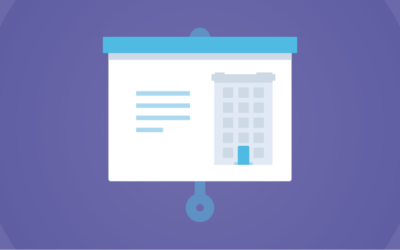There have been numerous studies demonstrating that regular maintenance extends the life of HVAC equipment and chillers are no exception. Maintained property, water cooled chillers will run over twenty years and air-cooled chillers will last up to sixteen or seventeen years per ASHRAE. Unfortunately, some building owners and facility managers defer maintenance due to budgetary constraints or other reasons that lead to performance issues down the road. To optimize chiller performance, it pays to be aware of the most common chiller failures.
The most common chiller failures are caused by compressor, electrical, or motor problems.
Compressor Maintenance to Optimize Chiller Performance
Compressor failure can be the result of any number of factors and is often attributable to problems elsewhere in the system. One simple routine task to prevent compressor failure is checking strainers and filters for dirt and debris and ensuring the compressor and pumps are appropriately sized for the load.
Eddy current testing, at a suggested interval of every three years, reduces the risk of chiller failure caused by condenser evaporator tube leaks or failures. Chiller tubes undergo daily stress as part of their normal operation which can allow rust and corrosion to take hold. Additionally, these rust particles can trickle into the evaporator tubes of the chillers, leading to corrosion that damages the compressor itself. An eddy test determines the wall thickness of the chiller tubes and can detect possible pitting, cracks and bulges that can precipitate tube leaks. Identifying issues before a major problem occurs prevents downtime and expensive replacement costs.
Chiller Electrical Maintenance to Optimize Chiller Performance
Electrical issues in the chiller plant can be caused by a host of issues including wires rubbing equipment frames or condenser fans not working appropriately. Electrical overload conditions will cause motors to draw in more current to maintain torque and can lead to overheating and damage to winding insulation. Regular attention to amperage draw, voltage, and contactors can avoid such issues.
Chiller Motor Maintenance to Optimize Chiller Performance
Chillers, pumps and tower fans use motors to move water and air or compress refrigerant. The failure of any of these motors threatens the operation of the entire chiller system. There are many reasons why motors fail, but three fairly simple, non-damaging tests can avoid a world of headaches when performed consistently.
- Oil Analysis: Regularly scheduled analysis of your chiller’s oil is a valuable aid in assessing internal mechanical condition. Oil comes in contact with many important internal components and can therefore hold valuable information about chiller health. An oil analysis will indicate whether there is moisture, acid, corrosion, bearing wear, impeller rubbing, or other equipment problems present. When an oil analysis reveals the presence of wear, a possible bearing or motor failure can be imminent, and a vibration analysis is recommended. The combination of these assessments will typically identify the failing component.
- Vibration Analysis: Every piece of HVAC equipment with rotating components has its own vibration signature. Any change in this signature can be used as an accurate means of identifying developing problems with chiller bearings, impeller imbalance, or open rotor bars in the motor. Vibration analysis should be performed on a regular basis to build a baseline and trend which can significantly aid in avoiding unplanned downtime and replacement costs
- Motor Insulation Resistance: Insulation problems on motors and drives are typically caused by improper installation, environmental contamination, mechanical stress, or age. Insulation tests should be performed on all chilled water system motors to monitor motor health. These assessments measuring the winding resistance. A low resistance indicates that the winding is deteriorating and indicates potential failure. Insulation-resistance trending can ensure that any changes are readily addressed.
Monitoring Chiller Performance
Selecting quality equipment and performing regular maintenance specific to the needs of each unit ensure a long and efficient life cycle. To protect such investments, the remote monitoring of chillers and cooling system can significantly aid maintenance and service efforts.
Chilled water system monitoring, like that of the Xpress® Energy Optimization Dashboard, provides facilities teams with real-time energy data for all chilled water equipment. Understanding how energy is used can help quickly identify energy waste and equipment problems, as well as overcharges and errors on energy bills. Xpress® also acts as an early warning system, sending emails or texts to staff when equipment such as a fan, pump or chiller is operating outside expected parameters.




